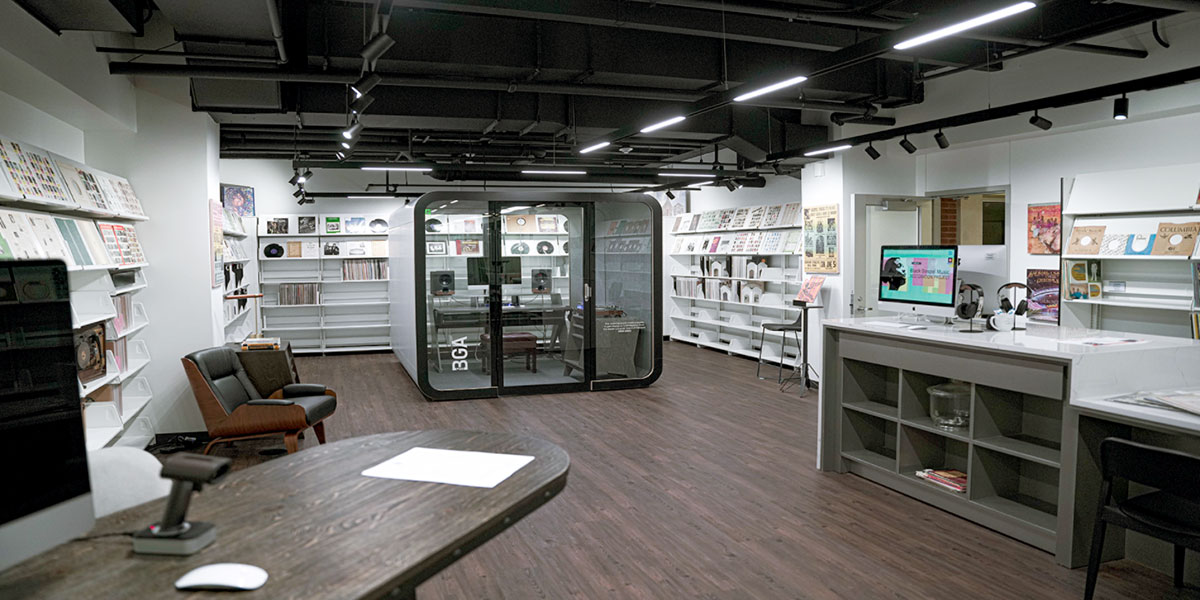Baylor Libraries unveils Black Gospel Archive & Listening Center for renowned music collection

For over a decade, Baylor Libraries has proudly tended to the Black Gospel Music Restoration Project (BGMRP), the world’s largest initiative to identify, acquire, scan, digitize, catalog and make accessible America’s fast-vanishing legacy of vinyl from gospel music’s “Golden Age.”
Since its launch in 2006, the BGMRP has grown in size and reputation. The collection now boasts more than 10,000 LPs and is featured in a permanent exhibit at the Smithsonian’s National Museum of African American Heritage and Culture. But even through all this, the collection has been confined to a small space in Moody Memorial Library — until now.
Earlier this month, Baylor unveiled the brand new, state-of-the-art Black Gospel Archive and Listening Center in Moody Memorial Library, which now houses the entirety of the BGRMP.
“We could not be more excited to open this space to the people of Waco, our Baylor community and researchers from around the world,” says Jeffry Archer, dean of University Libraries. “With every step along the way, from initial idea to the finishing touches, we have focused on respectful representations of African American culture, a commitment to the finest in technology and décor, and a spirit of welcome and inclusion for any and all who want to research and encounter this amazing collection of American heritage.”
See the new space and learn more about its significance in a video tour featuring Archer and Dr. Horace Maxile, a Baylor expert on Black composers:
The Black Gospel Archive and Listening Center (BGA) is located on the garden level of Moody Library and was designed with researching scholars in mind. The BGA features storage space for thousands of physical items, including LPs, 45 rpm discs and cassettes, as well as researcher computer stations and a custom work desk. The modern design and open floor plan are inviting, and draw the visitor toward the centerpiece of the space: a Framery-brand sound isolation pod, which includes high-end audio equipment and a full keyboard for researchers who want to play along with sheet music or recordings from the collection.
“I think the keyboard and the listening space are particularly significant, because they allows gospel music to remain an aural tradition, something that can be experienced through the ear,” Maxile says.
Almost half of the space is dedicated to archival storage of materials in the BGMRP’s physical collection. While outside loans still make up a majority of materials digitized for the project, Baylor Libraries holds a significant number of Black gospel albums, tape formats and other ephemera.
Sic ’em, Baylor Libraries!

